Imagine you are sitting in the comfort of your own home, watching one of the classic sci-fi movies from the 70s/80s. Perhaps it’s one of the John Carpenter films you have been paying homage to since your family and friends introduced you to the director’s stunning portfolio. As the screen cuts to black, the credits begin to roll with a heavy bass riff track positions itself in the back. The song screams serious amounts of ominous tones and new wave influence. This lead-in is courtesy of the atmosphere that the duo of Cliff Hayes and A. Walker Spring of CLIFFWALKER has unearthed. You have been deeply invested in seeing how the ebbs and flows of the characters find themselves in rather precarious situations that will ultimately lead them to a killer ending.
Spring laid her musical imprint within Portland by being part of the indie rock group Point Juncture, WA, and hosting a podcast titled Honest Jams. The show centers around Spring and cohort Ayal Alves challenging each other to write and record a new song each week. Hayes’ background included intense training that comes with learning jazz, which includes studying scales and arpeggios and reading a lot of charts. The two individuals happened to connect on occasion via gigs with mutual friends. But a severe discussion about combining riffs and artificial intelligence with Spring and a producer friend led to Hayes wondering if they could work together. The culmination is the edgy, pulsating EP Painted Gray Sky, which was released at the end of June. The melodic bass work from Hayes adheres to Spring’s enthralling guitar and synth lines. In total, Painted Gray Sky naturally moves from track to track with shadowy underlining that is compelling and progressive.
Living in Portland, you two seemingly have an influx of musical influences pass through. How much would you say being in the PNW has shaped you as an artist?
There are definitely two things about the PNW that I can say have shaped me as an artist. Number one is the people I’ve met here and the friendships I’ve made. You can cross paths with many people doing different things, whether indie rock, jazz, punk, or various publishing projects. Number two is the climate. Winter here can be quite wet and I actually look forward to Winter as a time to spend working indoors on various things and music is a great indoor activity. In general, I find the rain calming.
During the summer, when the days are long and there is more sunlight, I find myself working on things outside a lot more. Along with the shorter days, it’s a natural way of turning your focus inward. In the days before COVID, in Spring and Summer, it felt like an explosion of people coming together to enjoy the outdoors in the PNW, specifically around Portland. It’s all part of a natural cycle that I enjoy here and it’s certainly different from the pitiless and monotonous year-round sunshine I had growing up in Los Angeles.
I read that you were messing around with songs by playing them entirely on bass. What did you take away from that experimentation?
Yes, I’ve experimented with this idea for a long time, but around 2016 I started trying to turn songs into something I could recreate entirely on bass. One thing I enjoyed was taking a piano prelude by the composer Alexander Scriabin and reworking it for bass. I probably hadn’t done anything like that since my college days. It’s good to push yourself performance-wise and music-vocabulary-wise every now and then. Set some challenges for yourself and then rise up to them! If you’re not bumping up against your limitations as a performer or writer, then you’re not growing and that’s a big part of what makes music fun for me.
I have to come clean Cliff and reveal that I was extremely jealous to hear that you were a record store employee. What were some of your favorite moments?
It was a big “books and music” store that is no longer around, probably another casualty of online shopping and music streaming services. I worked there a couple of years during college, and my favorite moments were the different characters I met and all the music I was exposed to through them. Whether it was trying to play the craziest, most complex music for each other in the morning hours of a weekday shift before customers started showing up or dealing with the customer who was infatuated with the actor Gabriel Byrne and would constantly ask for his movies on DVD, there was always something going on. One time, a customer came in asking for the most “romantic classical music” we had. I pointed them towards Richard Wagner’s “Tristan und Isolde” opera, but I don’t think that was what they wanted. You definitely learn that taste is a very subjective thing! All those CDs we stealthily opened to play in-store, or the samples we got from the distributors for in-store play… I heard so much different music during those two years and learned about new things from customers coming in and asking questions. It was definitely a period of musical and personal growth.
Having been in a variety of different projects, what do you think makes CLIFFWALKER feel like you are tapping into new terrain as musicians?
For me, I’ve always been in the background as a bassist. With CLIFFWALKER, all the songs start from my bass riffs. Walker and I arrange and tweak those riffs into song form, but it all starts from those riffs I bring in to work on. That certainly is not the way it’s worked in most other bands I’ve been a part of! The bass is driving everything here and not just another part to a song that someone else has written. The instrumentation is somewhat unique, with Walker choosing to write melodies on the vibraphone as a form of counterpoint to the bass. It was a conscious decision on our part to make short instrumental songs where the bass and vibes were the focal instruments.
When you two started the first session together, how effortless did it feel when you began playing?
Well, I had a completely different aim that first time we got together. I had been working on solo bass covers, the aforementioned “play it all on bass” experiment. I wanted to add some drums to that experiment and we fiddled around for a few minutes, but then Walker suggested we play some of my riffs that she knew about from my previous attempts at recording a “library of bass riffs.” I remember saying that I hadn’t really been playing those riffs much, but there was one that was stuck in my head and hands. That was the riff to the tune “Painted Gray Sky” on the EP. So, I started playing that, she joined in on drums and we started working on an arrangement. It didn’t take long before we had a structure down that we both liked and then we recorded it in her basement studio, where we were jamming. The drums and bass (maybe even vibes?) you hear on the EP for that song come from our first jam session, which I also believe was the first time we ever played together. We’ve known each other for years, but this was the first time we worked together and it did seem quite natural. I realized quickly that Walker is a fountain of musical ideas and she’s not afraid to experiment. I come in with riffs, and we massage those into a structure when she runs with it while I make (hopefully constructive) comments from the sideline.
Did it occur to you and Walker during the initial sessions that it started to form the EP?
Once I let go of the bass-and-drums jamming aspect of my original intentions, it was clear that we were making an EP. We talked about it as we were laying down tracks that first session. “What if we make an instrumental EP built around bass riffs and vibraphone melodies?” Okay, let’s do it! Our eyes got bigger than our stomachs, thinking we could write and track a song every time we got together, but we didn’t stray too far from that pace. We probably didn’t spend more than 2 or 3 sessions working together on any single song. The foundation for each tune came together quickly.
So much of the EP feels as if you are telling a story without words. The description for the single “Punching Clocks” entails being within a dreadful place of employment. Society dictates such behavior along with time. What were some of the other messages you wanted to convey in the EP?
To be honest, all the songs existed as numbers in the order we recorded them for a long time. It was only after everything was done that I started to name them. However, since those tunes begin with me playing the bass, those songs will have a stamp of “Cliff-ness” on them. In that regard, the song titles are just as much a part of me and my ideas as the songs themselves. Walker’s playing felt like such a natural fit for my bass lines that I’m sure the same can be said of her parts. Those are all an expression of “Walker-ness” elicited in response to my basslines. Just about everything on the EP is in a minor key which is where I like to hang out most of the time, and a lot of these songs were composed as I was burning out at a job that I desperately wanted to move on from. The first three songs took titles from nature – sea, sky, and sun. All things that have a big impact on every one of us. The next three titles were a little more personal. “On Her Last Legs” is in an odd time signature and the title refers to watching our beloved family dog, Molly, fade away due to congestive heart failure right as we were putting the final touches on the recordings. “Pulling Threads” is an ode to pushing yourself into new territory and having to piece together things on your own – walking the tightrope between success and failure. And yes, “Punching Clocks” is about the various roles we play in order to get through life and everything it throws at us, particularly life as a worker/co-worker and the demands made of us by this techno-civilization we’ve been placed into.
Were there any outside influences pushing you two along with the writing of the EP?
If I had to name the primary musical influence on me at the time of creating this EP, it might sound strange, but the instrumentals from MF Doom, the Special Herb volumes, would be the one. There are always outside influences on anything you do! You are just aware of those influences to various degrees at the time. As I’ve already mentioned, the influence of job burnout pushed me through the EP’s writing and tracking sessions. Having a creative musical outlet through that period was a bright spot for me.
Are you two planning to continue releasing some new music soon? Doing any touring?
We’ve broken ground on some new ideas for the next EP. Again, it all starts from the bass, but this time around, Walker will be singing and focused on playing drums. We have plans for some brass and sax parts to layer on these more upbeat and in-your-face tunes. Something like “punk-jazz with horns” with Walker singing politically charged lyrics in response to the country’s rapid decline of civil rights. Going forward, we want to change up the instrumentation for each EP but keep them all built around the bass. If we stick with our plan, we hope to have this next EP done by the end of 2022 or early 2023. The other aspect of these tunes for the next EP is they might lend themselves more readily to live performance which we are eager to explore locally. I doubt a tour is in our future, but if touring makes sense, then we could make that happen.
Photo Courtesy: Cliff Hayes, A. Walker Spring


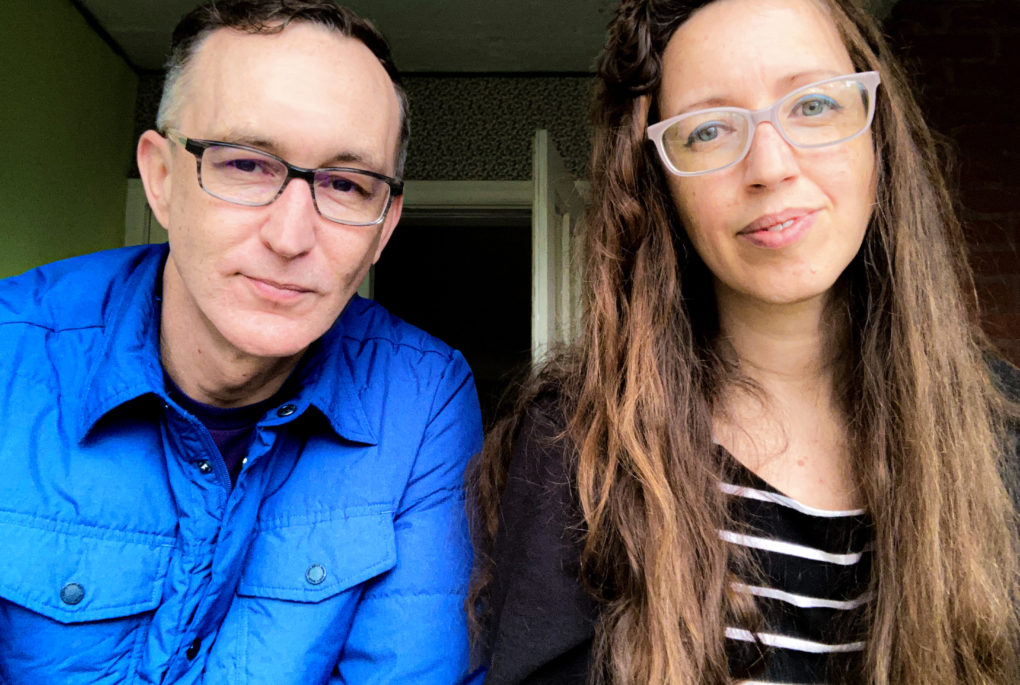
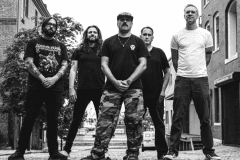
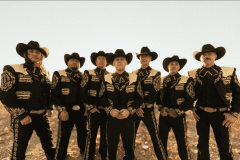
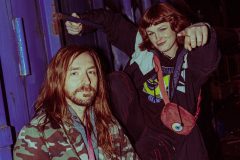
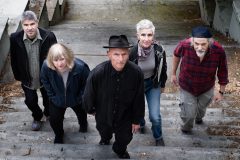

Social Media